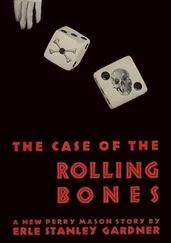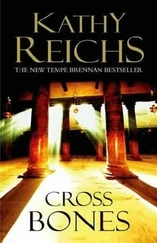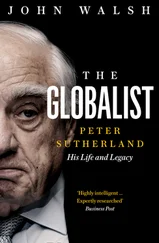I told her of my enquiries at the labour exchange for a position as lady’s maid in Chelsea, and she perked up appreciably. Gerald, the boorish owner, interrupted our sweet embraces and told her to get back to filleting the haddock or whatever duties she had to endure that morning, and I went away rejoicing. A delightful, almost-fulfilled woman with, at nineteen, a real future ahead of her.
Turned into Theobald’s Road, where motor carriages and omnibuses are more plentiful than I have ever seen them. Will everyone soon own a motor car? In Doughty Street, I paused at number 48, Chas Dickens’s house in 1837, the place where he wrote the latter part of Pickwick Papers , all of Oliver Twist and Nicholas Nickleby and the beginning of Barnaby Rudge , and all in two and a half years. It opened to the public five years ago, and is a place of wonder to me. Such concentration and energy! I look at his first-floor study, the writing table, the lock of his hair, the ‘Dingly Dell Kitchen’ with its pewter plates and warming pans, the reading desk he valued so much it accompanied him on his travels to America when he was nearing the end of his labours. One naturally imagines him alone, writing day and night to produce such prodigious masterpieces of imagination, busily inflamed with social concern, as if that were all his occupation in this tiny cell. But here was also the birthing scene of his daughters Mamie and Kate, and all the chaos and swaddling and cloacal atmospherics of tiny babies.
I know well how one is torn between fond indulgence at such familial sights and smells, and the guilty licence one gives oneself to depart from them at any pretext, and plunge oneself into the less claustrophobic arena of other people’s problems.
I remember the winter day (was it 1907? ’08?) when Sheilagh was yet a baby, and I arrived home from an exhausting week in London to discover she had been left for the afternoon at old Nanny Sedgwick’s, two miles from home in the hamlet of Binham, while Mimi was visiting her sister, over from Dublin and staying in Norwich. Snow had been falling all day across East Anglia, and the journey home from Wells in the pony and trap was a slow progress through drifts of white powder, waist-high. Mimi was home a half-hour before me, weeping that the roads to Binham were impassable, and the tiny infant must remain overnight with her aged companion.
‘Mrs Sedgwick is a mother three times over, and will know how to cope,’ I reasoned. ‘It is nine o’clock and the child will sleep till dawn, whereupon Sam can be dispatched to bring her home.’ Mollified, she poked the fire, we talked for a while and she readied herself for bed. Then – I have never forgotten this extraordinary event – she emerged from the bathroom in disarray, crying ‘Harold! Harold!’ I rushed to her side. She stood in the bathroom doorway, clad in her long cotton nightdress from the Liberty department store.
‘What is it?’
‘Sheilagh has woken up, and you must go and fetch her home,’ she said in a tone of voice that brooked no demur.
‘How can you possibly know?’ I asked. ‘Are you a mind-reader?’
In answer, she gestured to the front of her night attire, where two damp patches made clammy circles over her nipple region. The mysteries of the female anatomy were never more mysterious to me than at that instant.
‘Are you sure?’ I said.
‘Must I draw you a diagram?’ she cried. ‘Go and fetch her this minute!’
Understanding little of this mother-child collusion across the miles, I sought my bicycle, rejected it as no use in ferrying an infant, and telephoned Mr Phillips who plies a taxi service in the village. Twenty minutes later, we were stuck in an impassable snowdrift. Mr P handed me a shovel and together we dug the icy mounds from around the tyres and manoeuvred our craft – oh so slowly! – through the falling white Communion flakes.
Mrs Sedgwick greeted us like knights come to rescue a tiny Rapunzel from a castle. I took Sheilagh in my arms, swaddled in white blankets with young Anthony’s tweed cap protecting her membranous fontanelle, walked her through the icy path, treacherously frozen, and gained the taxi only after minutes of dangerous manoeuvre, skidding now this way now that, my free arm clinging to gatepost, fence and bramble hedge. My hands were frozen. I twice sank heavily to the icy cobbles, clutching my precious burden, trying to rise by the strength of my right arm alone, torn again and again on the thorns of the hedgerow. The brief distance to the taxi was, may God forgive the comparison, like the road to Calvary.
Mr Phillips rotated the starting handle, I bundled the baby into the back seat and we set off for home. The frozen engine began to roar, its note an angry crescendo of cold fury becoming hot passion in these frozen wastes. Exhilarated by the success of our rescue mission, I gazed at my firstborn and watched her sweet face as she woke, emerging from that unguessable foreign land of an infant’s dream. Her tulip mouth formed into a petulant moue and blew small, sucky kisses at the air. She was hungry. Mimi had been right, the secret evidence of her milky secretions confirmed. To distract the babe, I lifted her blanketed form in my arms – the lightest burden I ever carried! – and removed her cap so she could see through the windows.
‘My darling girl,’ said I, ‘this is snow. These white precipitations are flakes from Heaven, sent to settle upon the fields and hills, the houses and trees and streets of your village, and upon the people too, on Mr Phillips, our deliverer tonight, the gentleman whose back you see before you, and upon your mother, who is now standing on the Rectory porch wondering what has become of you, and upon your hapless father’s snow-white head, and upon you too. It is a boon of nature, for all its cold and sodden malignancy, for it settles on all things like divine grace covering the land and its inhabitants, binding us all, the virtuous and the unjust, in an eternal present, reminding us of the kindly folds of Redemption that will wrap us all, one day, in the bosom of the Lord, if we give up our sins and follow His precepts.’
My tiny daughter understood not one word of my elegant homily, but something happened that will never leave my memory. Her eyes gazed through the window at the falling snow, as incurious as if I had shown her one of those glass toys in which, when shaken, a snowstorm riots over a miniature hamlet. But then her eyes flicked into mine a look of steady interrogation, as though pondering these elevated sentiments, then flicked back to the window and the descending flakes, and she made, as if calling up a bitter-sweet memory, a secret smile. I held my breath – I had never seen her smile before – and thanked God for this small epiphany, and thanked Him also for the snow and ice that had occasioned it, no matter that we had to freeze and suffer for its arrival.
At home, Mimi seized the child, protested that never again would she let her stray from her loving arms et cetera, and fed her from both bursting breasts for full half an hour, while I plied Mr Phillips with hot brandy and water to thaw his frozen extremities. I built up the fire, procured some fruit cake from the larder and we ate it together like huddled refugees, and to this day I can recall no moment more redolent of family love, for all the strange upsets that befell us half a dozen years later, when I went away to war, and Mimi had a baby without my –
But these father’s tales are idle nostalgia. I left Dickens’s house, regained Theobald’s Road, went down Gray’s Inn Road and I lunched on a park bench set back from the road for the convenience of fatigued travellers, and fell into conversation with a young nanny who parked her black perambulator by the wooden seat. A comely girl of limited social graces, she met my enquiries as to her employment, her address and her current state of mind with a guarded hostility that one finds too often in young women nowadays. My genial enquiry as to which music-hall performer she would like to meet fell on stony ground. I turned the conversation to the Stimulation of the Infant Mind, and the folly of too early an exposure to language-learning, and we were away for half an hour, as she complained about her employers, their insistence on her holding up cards for the infant, showing the words ‘CAT’ and ‘APPLE’ and ‘BONNET’ and even ‘POLICEMAN’. I agreed vigorously about the importance of giving children the freedom to wander in the wild wood of fairy tales and nursery rhymes. She listened with interest to my tales of Sheilagh and Nugent in the nursery, their screams and laughter as we enacted together the tale of Hansel and Gretel and the crone in the Gingerbread House. But I went too far. Emboldened by our brief acquaintance, I acted the part of the Witch and, while demonstrating the scene in which she prods Hansel in the rib to determine if he was fattened enough to eat, the young lady took fright. Such a fuss, when I merely poked her playfully in the chest and said (in character, of course), ‘There needs to be more meat on this girl before she is ready.’ She shrank away, gathered the remains of her luncheon, her hat and the perambulator, and fled down Fetter Lane.
Читать дальше












